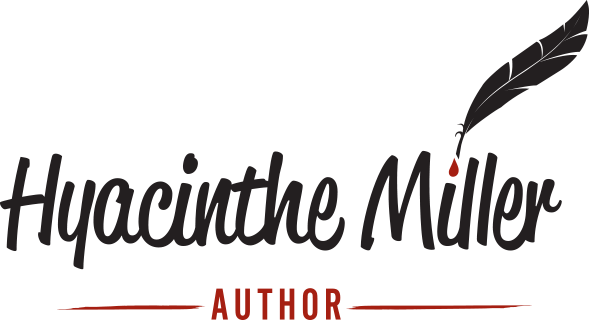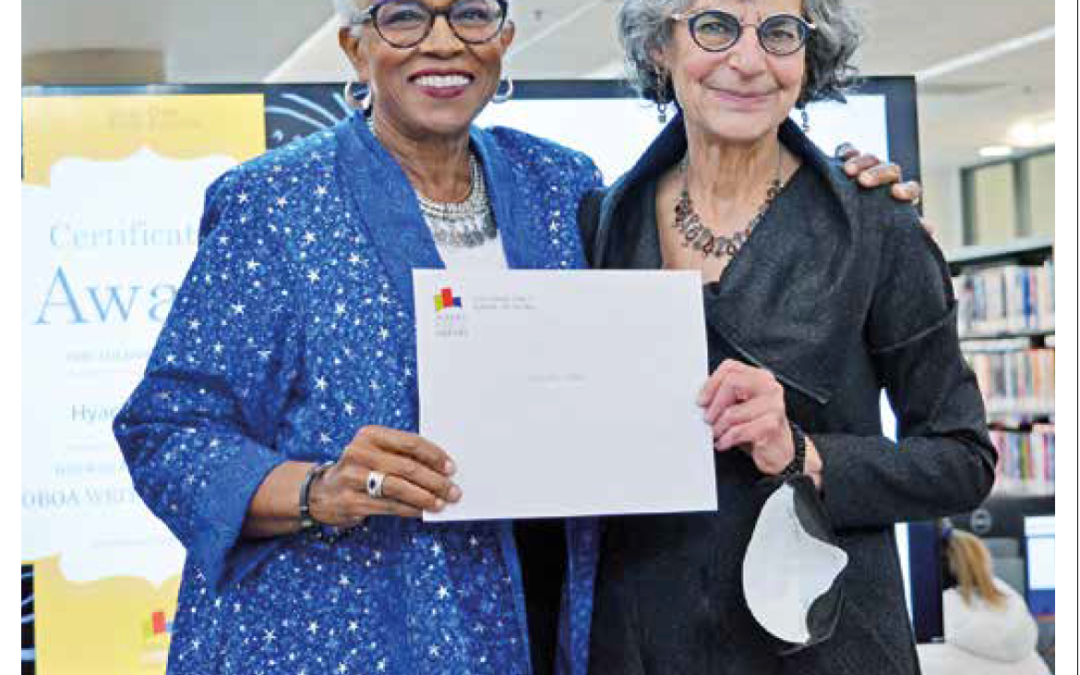2023 first prize winner, One Book: One Aurora Short Story Contest
I’ve concluded that our minds are like gigantic cellular cupboards where we hoard memories, good and bad. Even as we chafe at the history that’s being lost as the older generation passes away, a snippet of song lyrics, an Oscar Peterson piano riff on the radio, or scrapbooks of faded photos will transform those almost-stolen moments into revelations.
As with many families that formed in the mid-1900s, mine is rife with secrets and half-truths whispered by the older aunties and uncles who’d lived through stuff. Hanging out in kitchens while the woman chatted, laughed, tasted, and served platters of steaming comfort foods – fried chicken, roast pork, oxtail stew with fluffy dumplings, rice and black-eyed peas with gravy, beet greens, pies and fancy cakes — generated plenty of story-fruit. The long drapes of white cloths on dining room tables made for excellent hiding places, if you could avoid the shifting feet. Crouching near where the adults congregated after dinner was better than snooping on a confessional, even when we didn’t understand what they were talking about. We heard their words, we savored the emotions we witnessed but didn’t understand, and we remembered. We may live in an electronic age of information overload now, but the few forebears still with us claim they can’t remember events we ask about, or they fob us off with, ‘that was the past’.
I’ve nominated myself the keeper and teller of stories for our family. This project became even more important when I celebrated my 75th borthday. My mother died twenty-four years ago, a few months before she would have celebrated her 78th birthday, and I’m aware of the clock ticking for me as I approach that milestone. My two remaining aunties – aged 95 and 93 – are the youngest of the four siblings who survived to adulthood, have been splendid role models, true matriarchs for us all. But I’m conscious that they are slowing down, and that I am destined to play a similar memory-carrier role for my generation.
I am the oldest of four children, all of whom are over the age of sixty-five. Many of my cousins are in the same age group. My children are in their fifties. My eldest grandchild is in her thirties. Most of the photographs we’ve collected over the last 100 years will become meaningless to coming generations unless those precious glossy rectangles are placed in context, and associated with names, events and stories. Because I am passionate about the next generation knowing where they belong, where they came from and that why we are who we are is based on generations of our family history and associated generational trauma, the recollections to be shared cannot wait.
Here’s what I know. My great-grandfather outlived three wives and several of his offspring. My grandfather, born in 1896, was one of fourteen children, the son of a stone mason and coffin-making carpenter. Grandad emigrated from a small island in the Caribbean, landing in St. John’s, New Brunswick in 1917, on his way to join the WWI British Expeditionary Force. The trail goes cold for a few years.
After the war he settled in Montreal, Quebec. For some reason, that port city became a destination for many ‘colonials’ honourably discharged from the British armed forces. He married a woman (born 1897), who had arrived at Ellis Island, New York in 1917. The passenger manifest for the ship Targus notes that she was a domestic worker from Jamaica. She too ended up in frigid Montreal, to be employed by the wife of the Vice President of Canada Steamship Lines in a grand house in Westmount. Although Grandad was a carpenter by trade, he was, first of all, a Black man in a province where non-whites were deemed to be second-class, even if they were war veterans who spoke French. Excluded by the labour unions from his trade, he found work as a sleeping car porter, as did legions of Black men who came to Canada in pursuit of a better life.
They lived in the parish of St. Ann and had seven children. One daughter died before age two; one son died after being hit in the stomach by a deliberately hard-thrown baseball; another succumbed to tuberculosis. Grandad’s life ended in 1937, whether by accident or illness, we’re not sure. Grandmother died in 1939 from complications during a dental procedure, leaving the oldest daughter, my mother, as the sole support of two teenaged sisters and a brother at a time when Social Services and the local Catholic priest were eager to assign them to orphanages and lay claim to the meagre soldier’s pension that was their father’s legacy. Being poor and Black in the depths of the Great Depression must have been grim.
Like her sisters today, my mother’s version of events was sanitized. I’m not sure what she was protecting us from, though. I remember eavesdropping on mom’s stories about cleaning houses for $.25 an hour and toiling in a Jewish bakery. The bakery owners let her buy day-old bread at a discount; when your family is hungry and every penny must count twice, pride takes a back seat to practicality. Mom worked as a nanny, complete with white frilly cap, bib apron and black uniform. I know that because I have photos of her in a park, smiling as she holds up a fat white baby called James.
I don’t think I’d have had the courage to endure. In retrospect, the indignities she suffered could have been soul-destroying – social workers dropping by at all hours, searching closets and under beds for evidence there was a man living under her roof, not believing that a shy 19-year-old Black girl could support a family of four. But she did and they did. The Negro Community Centre was a cornerstone for the Black community in those days. Rather than rallying around the orphans, however, they cast a jaundiced eye on the unconventional behaviour of these four upstarts and waited for them to fail. Even though people in her mostly-immigrant neighbourhood were as skeptical as the bureaucrats, my mother did not fail; all the children graduated from high school.
We’d been told that my father was birthed in 1920 in Cuba but grew up in rural Jamaica. He had one brother, who, interestingly enough, claimed the same birth date, although they were not twins. Record keeping was sporadic, so the uncertainty about dates was no surprise.
The boys were orphaned when my dad was very young. Their father, an itinerant agricultural worker, bled to death after his legs were amputated by the wheels of a rail wagon hauling sugar cane. Dad’s mother was sickly, never venturing far from their cabin. The story is that my dad, at five years old, was found sitting by her bedside. He’d been there for two days trying to wake her, not knowing that she was dead. He was farmed out to another relative who, instead of sending him to school regularly, used him for cheap labour. Meanwhile, his brother lived with a relative who treated him more kindly.
Like my maternal grandfather, my dad joined the British Army. On his way to serve as a sapper in Egypt, he travelled to England via Montreal, where he met my mother at a dance given for the troops. They married in January. I was born in October, a week after he returned from WWII, and his honorable discharge from the army in December.
My sensitive poet father was taught to dig trenches, lay mines, and shoot the enemy. How do I know that? I have a book of the poems he wrote. I’ve not yet been able to read more than three or four at a time, they are so raw and questioning. I treasure his three medals, because I know how hard-won they were.


